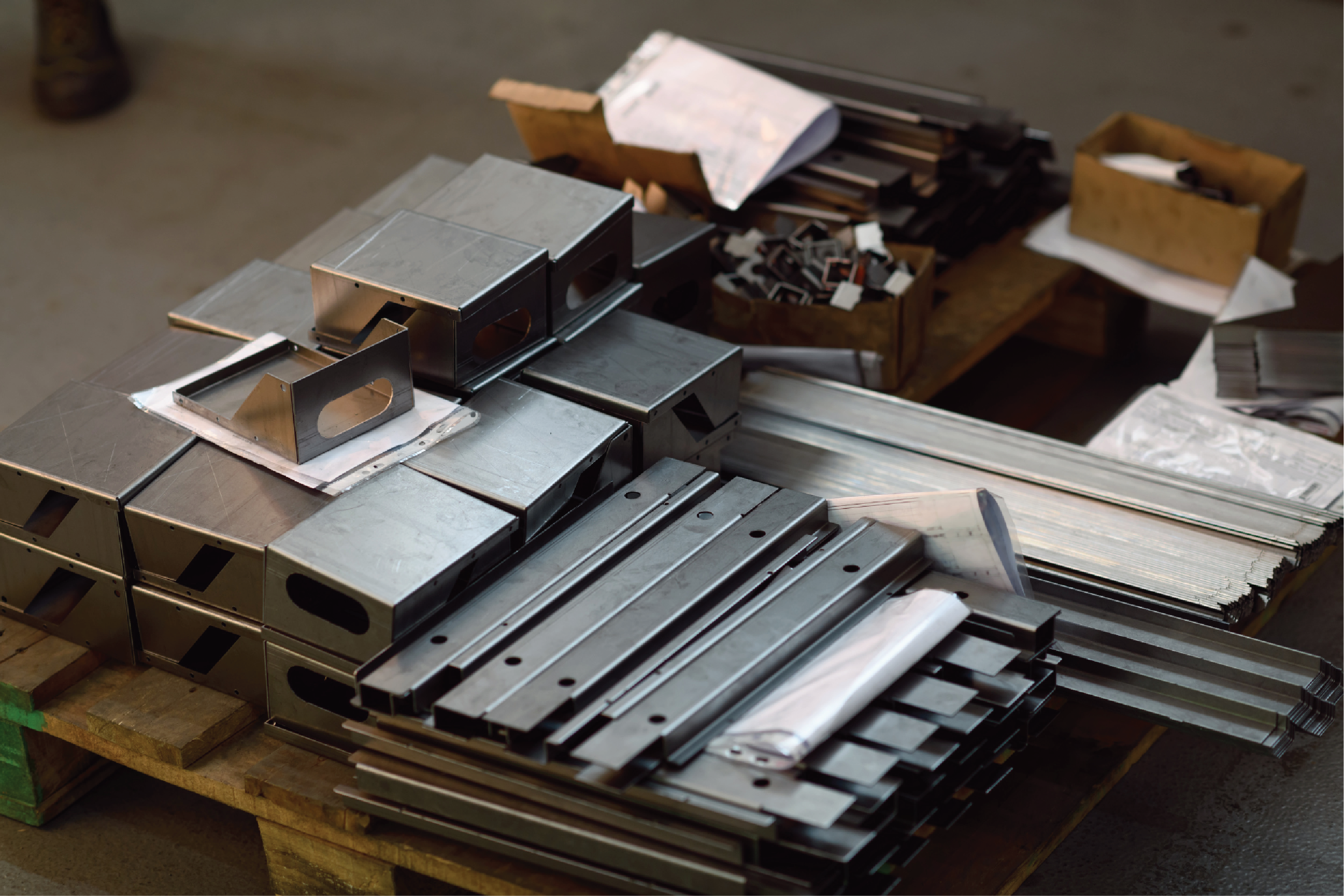
What Materials Can Be Machined By a CNC? | Rainhouse
What Materials Can Be Machined By a CNC?
In the realm of modern manufacturing, CNC (Computer Numerical Control) machines have become indispensable tools, capable of machining a wide range of materials with precision and efficiency. At Rainhouse Manufacturing, we leverage the power of CNC technology to fabricate high-quality components and parts. In this blog post, we will explore the materials that can be machined by a CNC, highlighting their characteristics, considerations, and applications. Whether you’re a fellow manufacturer, designer, or simply curious about CNC machining capabilities, this guide will provide valuable insights into the materials suitable for CNC operations.
Metals
Metals, renowned for their durability and versatility, serve as a prime material choice for CNC machining due to their ability to be precisely shaped and machined to create intricate parts and components. Below are several commonly utilized metals for CNC parts fabrication:
Aluminum
- Lightweight with a good strength-to-weight ratio
- Excellent machinability and heat dissipation
- Widely used in aerospace, automotive, and electronics industries
Steel
- Strong and durable material with various alloy options
- Different grades for different applications (carbon steel, stainless steel)
- Commonly used in automotive, construction, and industrial sectors
Brass
- Excellent corrosion resistance and electrical conductivity
- Machinable with high precision and smooth surface finish
- Applications in plumbing, electrical, and decorative components
Titanium
- Exceptional strength-to-weight ratio
- Challenging to machine due to its hardness and heat resistance
- Commonly found in aerospace, medical, and high-performance industries
Plastics
Plastics, known for their versatility and wide range of properties, are an excellent choice for CNC machining as they can be accurately shaped and machined to create intricate and customized parts and products. The following are frequently employed plastics in the field of CNC machining:
Acrylic (PMMA)
- A transparent material with excellent optical properties
- Machinable with high precision and polished finish
- Used in signage, displays, and consumer products
Nylon
- Tough and wear-resistant material
- Machinable with good dimensional stability
- Applications in the automotive, industrial, and textile sectors
ABS (Acrylonitrile Butadiene Styrene)
- Durable and impact-resistant material
- Machinable with a good surface finish
- Widely used in automotive, electronics, and consumer goods
PEEK (Polyether Ether Ketone)
- High-performance thermoplastic with excellent mechanical properties
- Challenging to machine due to its high melting point
- Commonly found in aerospace, medical, and engineering applications
Composite Materials
Composite materials, combining the strength of different materials, offer a unique opportunity for CNC machining, allowing for precise shaping and cutting of these versatile materials to create lightweight and durable components with enhanced performance characteristics. CNC machining often involves working with various composite materials, and here are a few examples of commonly used composites:
Carbon Fiber Reinforced Polymers (CFRP)
- High strength-to-weight ratio and excellent stiffness
- Requires specialized machining techniques (diamond-coated tools)
- Applications in aerospace, sports equipment, and automotive industries
Fibreglass Reinforced Polymers (FRP)
- Lightweight and corrosion-resistant
- Machinable with proper tooling and techniques
- Used in marine, construction, and automotive sectors
Wood Composites:
- A mixture of wood fibres and binders
- Machinable with various cutting tools and techniques
- Applications in furniture, cabinetry, and construction
Summary
CNC machining offers a versatile solution for fabricating components across various materials. Whether it’s metals like aluminum, steel, brass, and titanium, plastics such as acrylic, nylon, ABS, and PEEK, or composite materials like carbon fibre and fibreglass composites, Rainhouse Manufacturing utilizes CNC technology to achieve precision and quality. Understanding the properties, machinability, and applications of different materials is crucial for selecting the appropriate material for CNC operations. By leveraging the capabilities of CNC machines, manufacturers can unlock endless possibilities for creating high-quality parts across various industries.
Rainhouse Manufacturing Canada Ltd.
Rainhouse prides itself on its ability to CNC machine parts out of a wide range of materials. With our expertise and state-of-the-art equipment, we can effectively work with various metals, including aluminum, steel, stainless steel, and titanium, to produce precision-machined components. Additionally, we have extensive experience in CNC machining plastics, such as ABS, acrylic, nylon, and polycarbonate, allowing us to create intricate parts with exceptional accuracy. Furthermore, our capabilities extend to CNC machining composite materials, such as carbon fibre and fibreglass, enabling us to produce lightweight yet robust components. Whatever the material, Rainhouse Manufacturing Canada Ltd. has the knowledge, skills, and technology to deliver CNC machined parts of the highest quality and precision.





